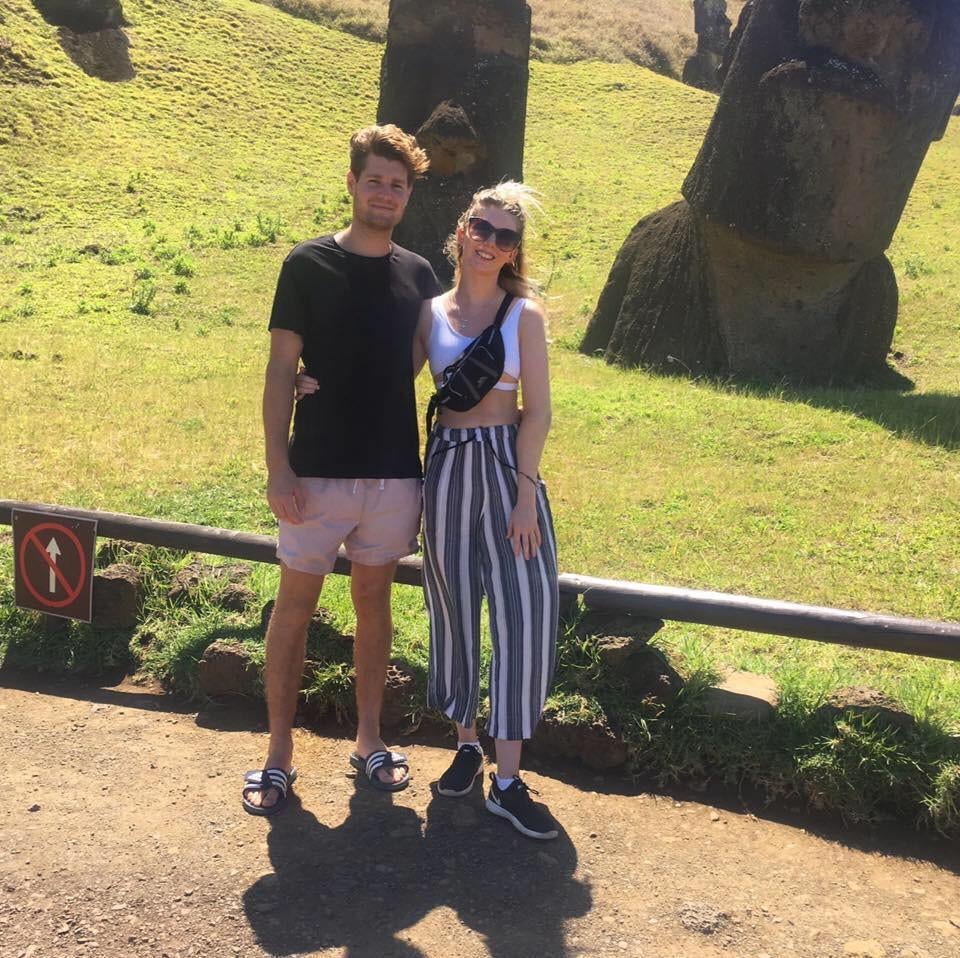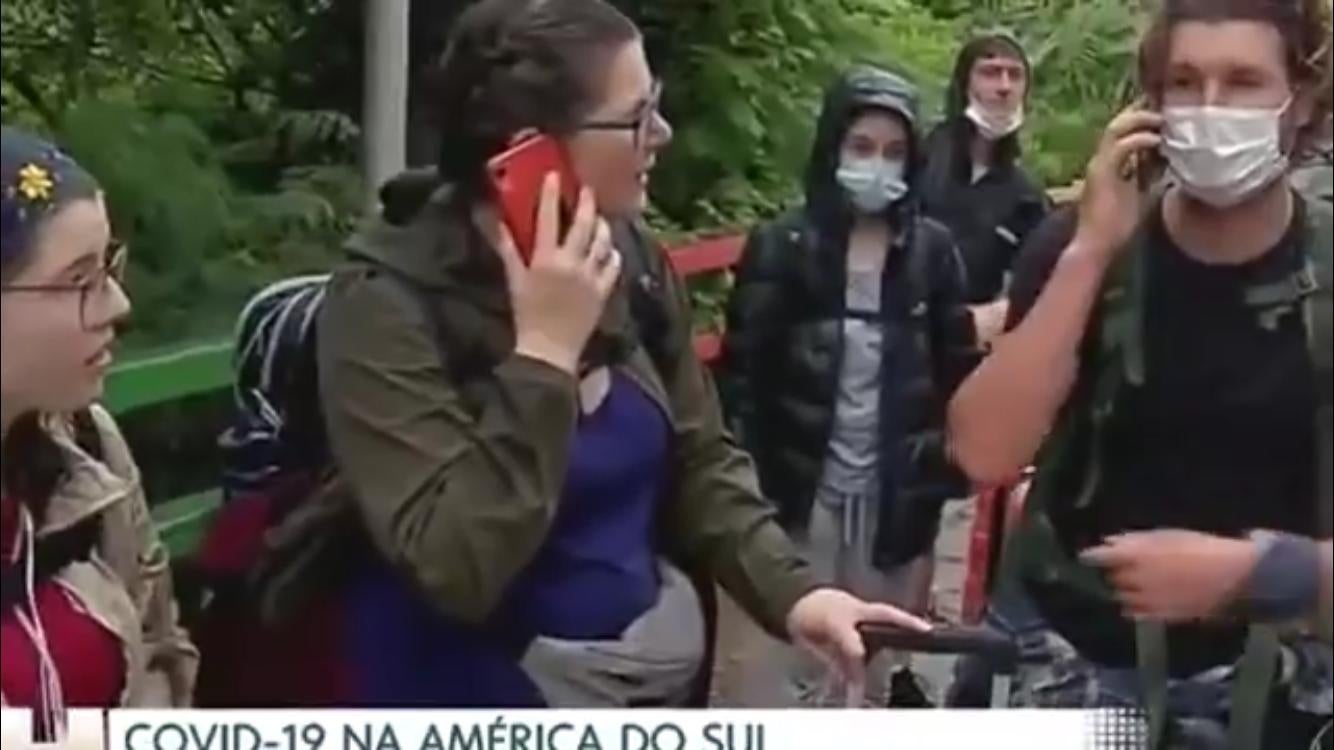Coronavirus: British couple stranded in Bolivia say they have been ‘abandoned’ by UK government
Pair’s dream gap year trip turns to nightmare as pandemic leaves them trapped in country on brink of violence
Your support helps us to tell the story
From reproductive rights to climate change to Big Tech, The Independent is on the ground when the story is developing. Whether it's investigating the financials of Elon Musk's pro-Trump PAC or producing our latest documentary, 'The A Word', which shines a light on the American women fighting for reproductive rights, we know how important it is to parse out the facts from the messaging.
At such a critical moment in US history, we need reporters on the ground. Your donation allows us to keep sending journalists to speak to both sides of the story.
The Independent is trusted by Americans across the entire political spectrum. And unlike many other quality news outlets, we choose not to lock Americans out of our reporting and analysis with paywalls. We believe quality journalism should be available to everyone, paid for by those who can afford it.
Your support makes all the difference.For three nights now, Harry Guy-Walters and Molly Holmes have lain in bed in an Airbnb in the Bolivian city of La Paz and listened as riots take place outside.
“It’s pretty terrifying,” he says. “We’re trying to sleep in this strange city we can’t get out of – and it’s all kicking off everywhere.”
The couple, both 23, have seen their dream gap year trip to South America turned into a living nightmare, due to the coronavirus.
Instead of exploring the country’s famed salt flats and Lake Titicaca, they have been left entirely trapped in their apartment with no way of getting home – as violence spreads across the locked down country.
Covid-19 has meant virtually all flights out have been cancelled and all land borders closed.
Now, a country-wide government curfew means residents and visitors have been ordered to stay inside at all time apart from a slim window between 8am and midday. Although with some cities, including nearby El Alto, now seeing nightly battles between police and protestors, it would seem not everyone is following the new laws quite to the letter.
“Except for food supplies, we’re not going out at all,” says Molly, a marketing executive, from the three-room apartment. “If we caught the virus here and needed treatment, we’ve no idea what would happen.”
They have repeatedly, they say, contacted the British embassy begging for help. Each time, they are told to stay put and hold tight. But more than a week since the country’s borders were sealed off, no help – or even suggestion of help – has been forthcoming. They feel, they say, “abandoned”.
“I just want to be home,” says Molly. “It doesn’t feel safe here. The curfew is supposed to be in place until 4 April but our neighbour says the rioting will only get worse the longer it goes on.”
Their desperate plight reflects that of hundreds of thousands of people stranded abroad as country after country across the globe shut their borders and airlines dropped flights – often without any notice – in a bid to prevent the pandemic.
Foreign secretary Dominic Raab said last week that up to a million Brits could be stranded abroad, unable to return for possibly months.
Yet for Harry and Molly, their attempts to get home are perhaps indicative of the problems experienced by many UK citizens overseas: a feeling of being let down by embassies which were supposed to be there for them.
“Whenever you’re in England, you always feel that if anything goes wrong in a foreign country, ring the embassy and they’ll sort it right out,” says Harry, a scaffolder by trade. “But... I have found, not only was it hard to get in contact with someone, but since I have, the updates are brief, they’re not personal and they don’t fill you with a lot of confidence.”

The couple – who met while studying at the University of Nottingham – had been in South America for seven months on their once-in-lifetime trip.
Last Monday, with foreign office advice still suggesting it safe to be abroad, the couple set out on a three-day excursion to Bolivia’s remote salt flats.
But within hours of setting off, they received news that next-door Chile was cutting off its borders for a period. And, by Tuesday – with the couple a day-long drive from Uyuni, the nearest city – that advice from the British government had also changed: it now said nationals should avoid all non-essential overseas travel.
“Safe to say, that put a dampener on the excursion,” says Molly, who is originally from King’s Lynn. “That’s really when we decided we needed to get home – but it took until Wednesday to get back to Uyuni.”
From there it was another day of travel for them to Santa Cruz’s Viru Viru International Airport, the country’s biggest, where they were told all planes had been grounded.
“We were showing staff all these flights on Skyscanner,” says Molly. “They were looking at them going, ‘These flights no longer exist, I’m sorry’.”
Acting on advice that the land border with Brazil remained open, the couple headed there, with three Australians they had met at the airport – in the hope they could catch a flight to Europe once across the border.
“It was an eight-hour journey with five of us plus luggage in a four-seater car,” says Molly. “It was the worst journey of my life...At one point, we ran out of petrol and had to siphon it from a motorcyclist .”
The trip was futile anyway.
At the border, they were turned away. After several hours queueing, gun-toting guards said all crossings had been stopped. When the couple tried to show officials they had connecting flights to Europe booked from an airport just six kilometres away, they were told it did not matter.
When they tried to argue the point, one guard unclipped his gun. Clips on Brazilian news showed the chaos as hundreds tried to make the same pleas.
“It was the scariest moment of my life,” says Molly. “We left pretty soon after that.”

Now back in La Paz – which the British embassy said would be the most likely destination for a rescue flight – they are sitting each day, hitting refresh on the government’s website, hoping to be saved. So far, without any luck.
“It feels like we’re prisoners,” says Harry, from Bishop Stortford. “We have nothing to do but are just trying to fill our heads with as much knowledge about the situation as possible so we can try and be prepared.”
They have, they say, no real medical supplies. “Well, we have a thermometer in a first aid pack so, if one of us gets it, at least we’ll know,” says Molly.
Responding to the criticism that they had done little to help, a spokesperson for the foreign office said: “We recognise that any British people currently overseas may be nervous about the impact of coronavirus on their travel and their health.
“We are in close contact with travel providers and our international partners to provide support to those British people affected by ongoing measures to prevent the spread of Covid-19.”
But the statement was of little comfort to the couple.
“We know we’re not the only people in this situation,” says Harry. “We know there are others far worse off. But we wanted to share our story, I suppose, to show what we feel is neglect by the government. Not just to us but to thousands of people also trapped in different parts of the world.”

Join our commenting forum
Join thought-provoking conversations, follow other Independent readers and see their replies
Comments